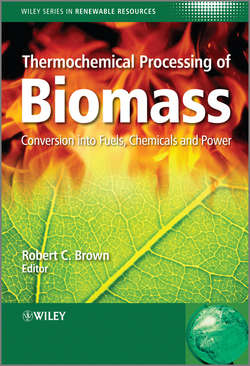Описание книги
Thermochemical pathways for biomass conversion offer opportunities for rapid and efficient processing of diverse feedstocks into fuels, chemicals and power. Thermochemical processing has several advantages relative to biochemical processing, including greater feedstock flexibility, conversion of both carbohydrate and lignin into products, faster reaction rates, and the ability to produce a diverse selection of fuels. Thermochemical Processing of Biomass examines the large number of possible pathways for converting biomass into fuels, chemicals and power through the use of heat and catalysts. The book presents a practical overview of the latest research in this rapidly developing field, highlighting the fundamental chemistry, technical applications and operating costs associated with thermochemical conversion strategies. Bridging the gap between research and practical application, this book is written for engineering professionals in the biofuels industry, as well as academic researchers working in bioenergy, bioprocessing technology and chemical engineering. Topics covered include: Combustion Gasification Fast Pyrolysis Hydrothermal Processing Upgrading Syngas and Bio-oil Catalytic Conversion of Sugars to Fuels Hybrid Thermochemical/Biochemical Processing Economics of Thermochemical Conversion For more information on the Wiley Series in Renewable Resources, visit www.wiley.com/go/rrs
